“…All of this is on account of we want to register, to become first-class citizens. And if the Freedom Democratic Party is not seated now, I question America. Is this America, the land of the free and the home of the brave, where we have to sleep with our telephones off the hooks because our lives be threatened daily, because we want to live as decent human beings, in America?”
–Fannie Lou Hamer, from her testimony at the Democratic National Convention, August 22, 1964.
Who Is Fannie Lou Hamer?
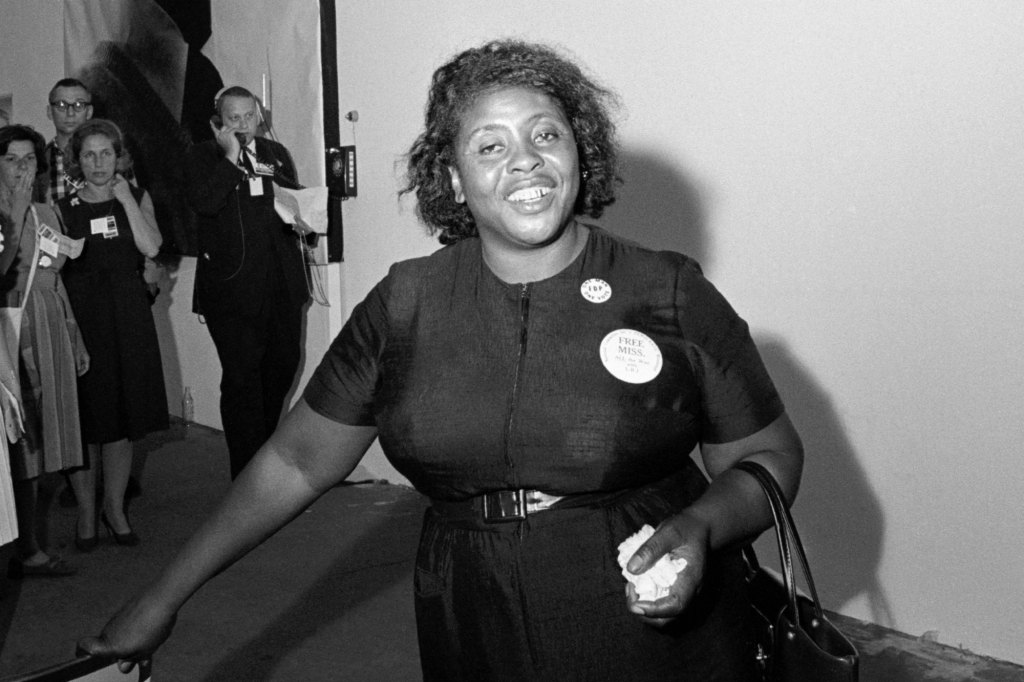
When the talk about civil and(or) black rights activists is brought up, we probably recall prominent names like Martin Luther King, Jr, Malcolm X, Rosa Parks, Nelson Mandela, Marcus Garvey….but rarely does the name Fannie Lou Hamer cross our minds; who, with her life, paved the way for black voting rights, and is, perhaps, the bravest and fiercest of them all. Perhaps, after you must have read this piece, when anyone asks if you know Fannie Lou Hamer, you would affirm boldly, to signify that you’ve been to these streets, that Ms. Hamer was the African American woman who paved the way for black voting rights.
Fannie Lou Hamer’s Biography
Born Fannie Lou Townsend on the 6th of October, 1917, in Montgomery County, Mississippi, Hamer was the youngest of 20 children in a family of sharecroppers. Fannie Lou Hamer grew up picking cotton and cutting corn from the fields at the age of six. Sharecropping was seemingly the only available job for black Americans at the time, and they did not gain much capital out of it despite the tedious, backbreaking work they did for the field owners who were White Americans. At age 12, Hamer dropped out of school in a bid to work full time at the field and help out her family.
In 1944, she married a fellow sharecropper, Perry “Pap” Hamer and together the two scratched out a living; toiling, doing menial work on a cotton plantation near Ruleville, Mississippi. Hamer struggled with her life as a sharecropper under the system designed to subjugate people of color in the American state. She, with her husband, eventually adopted children to raise a family for she was unable to bear offsprings of her own after a surgeon had performed a hysterectomy on her without her knowledge or consent, during a tumor removal surgery.
Fannie Lou Hamer’s life took a dramatic turn the day she attended, out of curiosity, a mass meeting to learn about voting. It was August 1962 and Hamer, who was forty-four years old, wasn’t even sure what a “mass meeting” was. “I was just curious to go, so I did,” she said. The meeting was organized by the Student Nonviolent Coordinating Committee (SNCC), a civil rights group, and Hamer learnt for the first time that black people had the right to vote; something she’d never known before. Hamer decided on the spot to register to vote. And so on the 31st of August later that year, she boarded a bus alongside seventeen others and traveled to the county courthouse in Indianola to register to vote. Upon their arrival, they were required to take literacy tests, an obvious decoy by the government to keep them from exercising their civic responsibilities. She failed the test, and was denied voter registration, alongside the other seventeen.
Such brave defiance came at a great cost for Hamer and her family. The following day, both Hamer and her husband were thrown off their jobs at the plantation where they’d lived for eighteen years- just for trying to register to vote. In her testimony before the credentials committee, Hamer said, in response to the plantation owner, “I didn’t try to register for you. I tried to register for myself.” Hamer with her family both lost the plantation they’d known as home for almost two decades. But these actions only solidified Hamer’s resolve to help other African Americans get the right to vote. According to The New York Times, she said, “They kicked me off the plantation, they set me free. It’s the best thing that could happen. Now I can work for my people.”
Hamer immediately went on to work as field organizer for the SNCC and dedicated her life completely to the fight for civil rights. Hamer spearheaded voter registration drives, engaged in civil disobedience(a form of nonviolent resistance against racial segregation and injustice against people of color) and several relief efforts, but her involvement in the Civil Rights Movement constantly left her in harm’s way. Hamer’s nonviolent forms of activism were met with thorough violence during the course of her activist years. She, with a group of other activists, was threatened, shot at, and on one several of these events in 1963, after being arrested, was beaten severely in a Winona, Mississippi jail, from which she suffered permanent kidney damage and an injury to the left eye.
She was, nevertheless, undeterred by these acts of violence and sheer hatred. During this time when she was asked if she was afraid of these violent encounters, Fannie Lou had responded, “What was the point of being scared? The only thing they could do to me was kill me and it seemed like they been trying to do that a little bit at a time ever since I could remember.” Hamer, after she recovered, went round the United States, telling her story and leading the 1964 Mississippi Freedom Summer Campaign, a massive voter registration drive to help Black Mississippians register to vote.
In 1964, with the support of the Mississippi Freedom Democratic Party (MFDP), Hamer ran for Congress. In an interview with the Nation, Hamer said, “I’m showing the people that a Negro can run for office.”
After series of attempts and failures, Fannie Lou Hamer became the first African American to take her rightful seat as an official delegate at a national-party convention since the Reconstruction period after the Civil War, and the first woman ever from Mississippi.
Even in declining health, after being diagnosed with breast cancer in 1967, Hamer continued to champion her outright, impassionate fight for civil rights. She died on March 14, 1977, in a hospital in Mound Bayou, Mississippi.
Fannie Lou Hamer Quotes
To celebrate the undisputed legacy of the Civil Rights Pioneer, here are some of Fannie Lou Hamer quotes:
1. “Every red stripe in that flag represents the black man’s blood that has been shed”
2. “Sometimes it seem like to tell the truth today is to run the risk of being killed. But if I fall, I’ll fall five feet four inches forward in the fight for freedom. I’m not backing off.”
3. “When I liberate myself, I liberate others. If you don’t speak out ain’t nobody going to speak out for you.”
4. “We didn’t come all the way up here to compromise for no more than we’d gotten here.”
5. “When they asked for those to raise their hands who’d go down to the courthouse the next day, I raised mine. Had it high up as I could get it. I guess if I’d had any sense I’d’ve been a little scared, but what was the point of being scared? The only thing they could do to me was kill me and it seemed like they’d been trying to do that a little bit at a time ever since I could remember.”
6. “You can pray until you faint, but unless you get up and try to do something, God is not going to put it in your lap.”
7. “I don’t want equal rights with the white man; if I did, I’d be a thief and a murderer.”
8. “Righteousness exalts a nation. Hate just makes people miserable.”
9. “I am sick and tired of being sick and tired.”
10. “Hate won’t only destroy us. It will destroy these people that’s hating as well.”
11. “We have to build our own power. We have to win every single political office we can, where we have a majority of Black people…”
12. “There is one thing you have got to learn about our movement. Three people are better than no people.”
Ms. Hamer’s legacy is one worth remembering always, one we should never allow to slip from the reins of our constantly fazing memory. A legacy we ought to preserve amongst treasures, pass it on to our future generation, that they may pass it on to the next after we’ve passed.
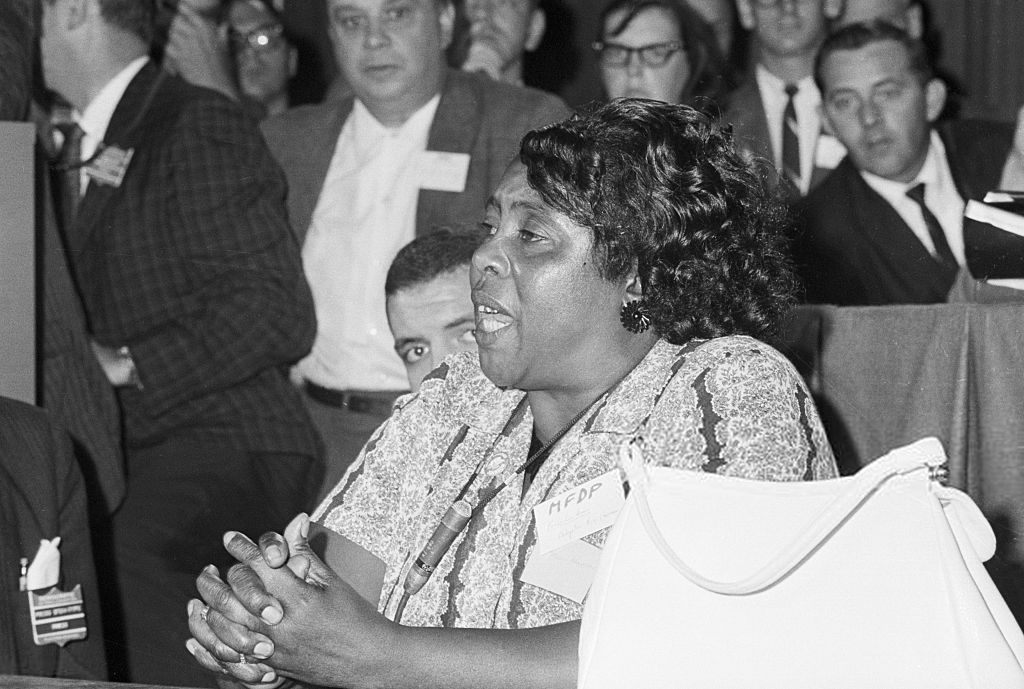

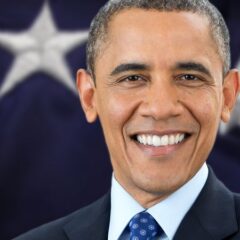
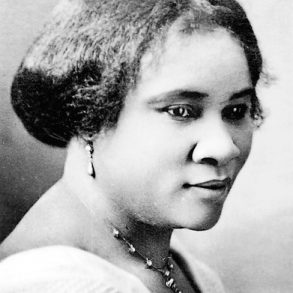
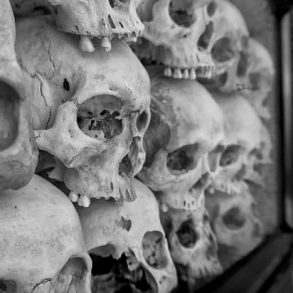
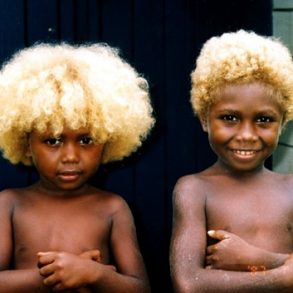

Like!! Really appreciate you sharing this blog post.Really thank you! Keep writing.